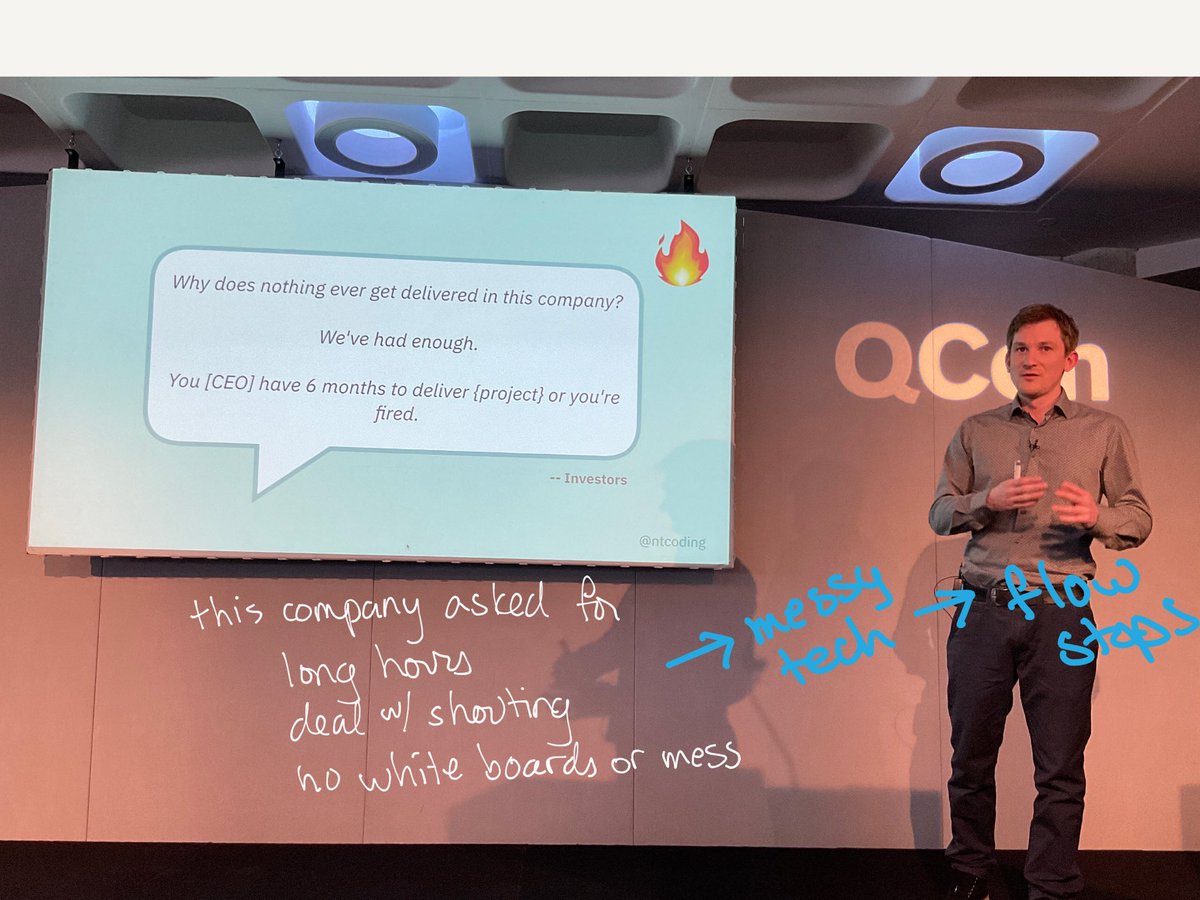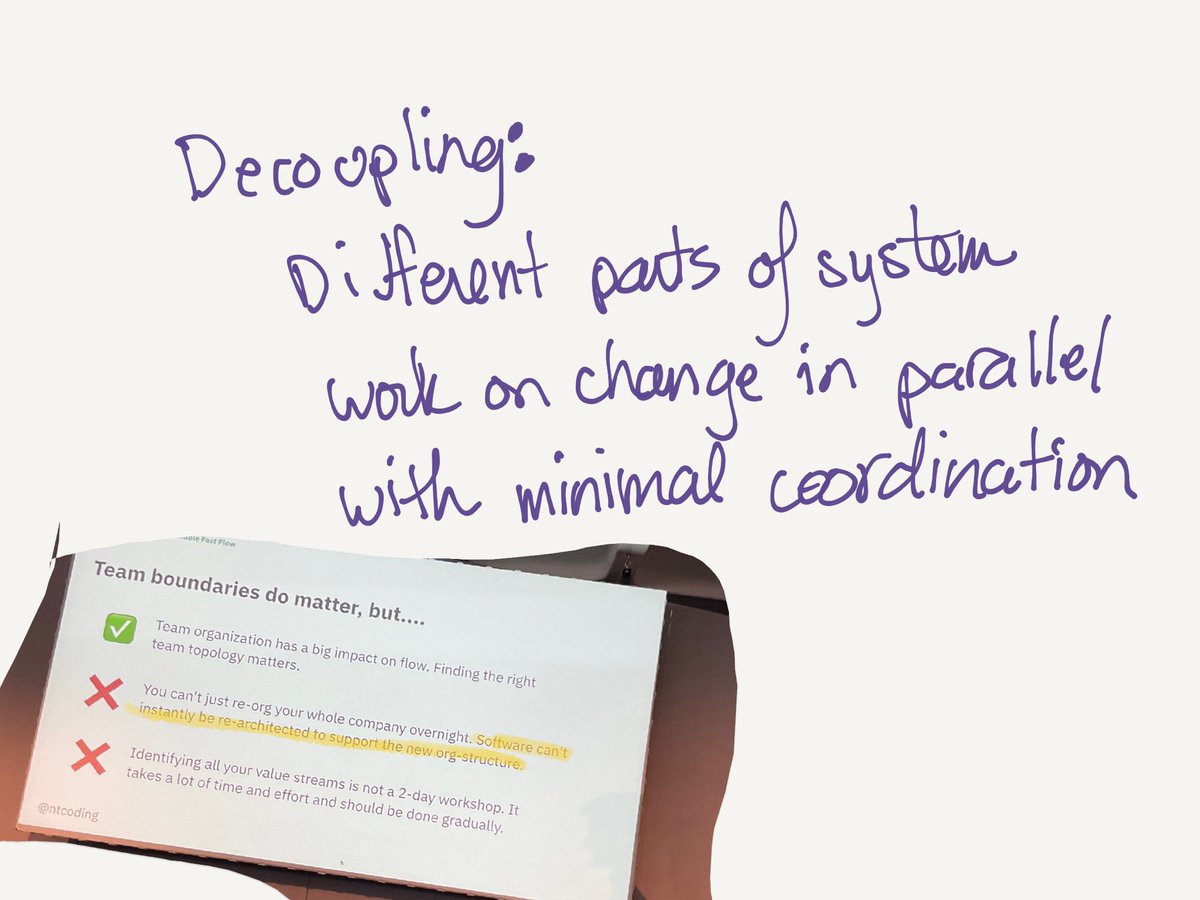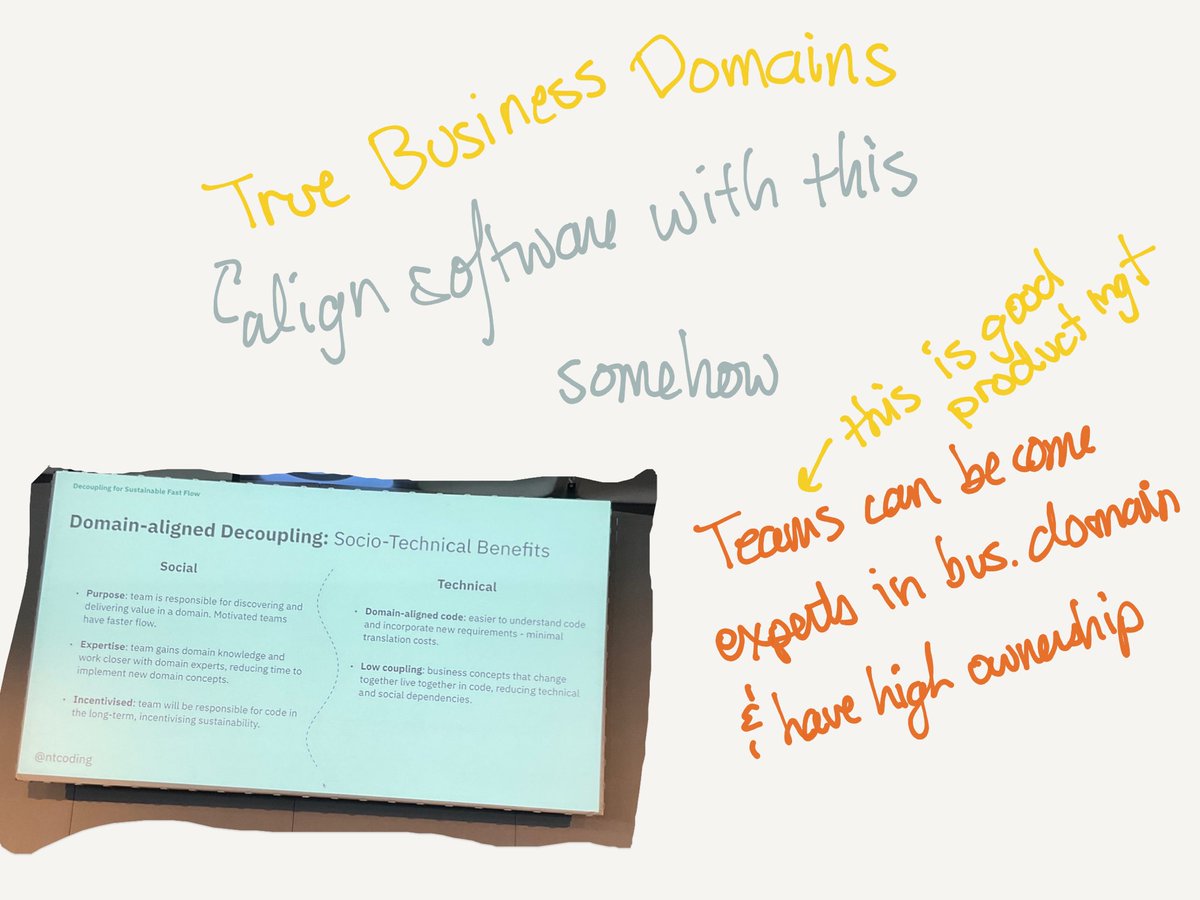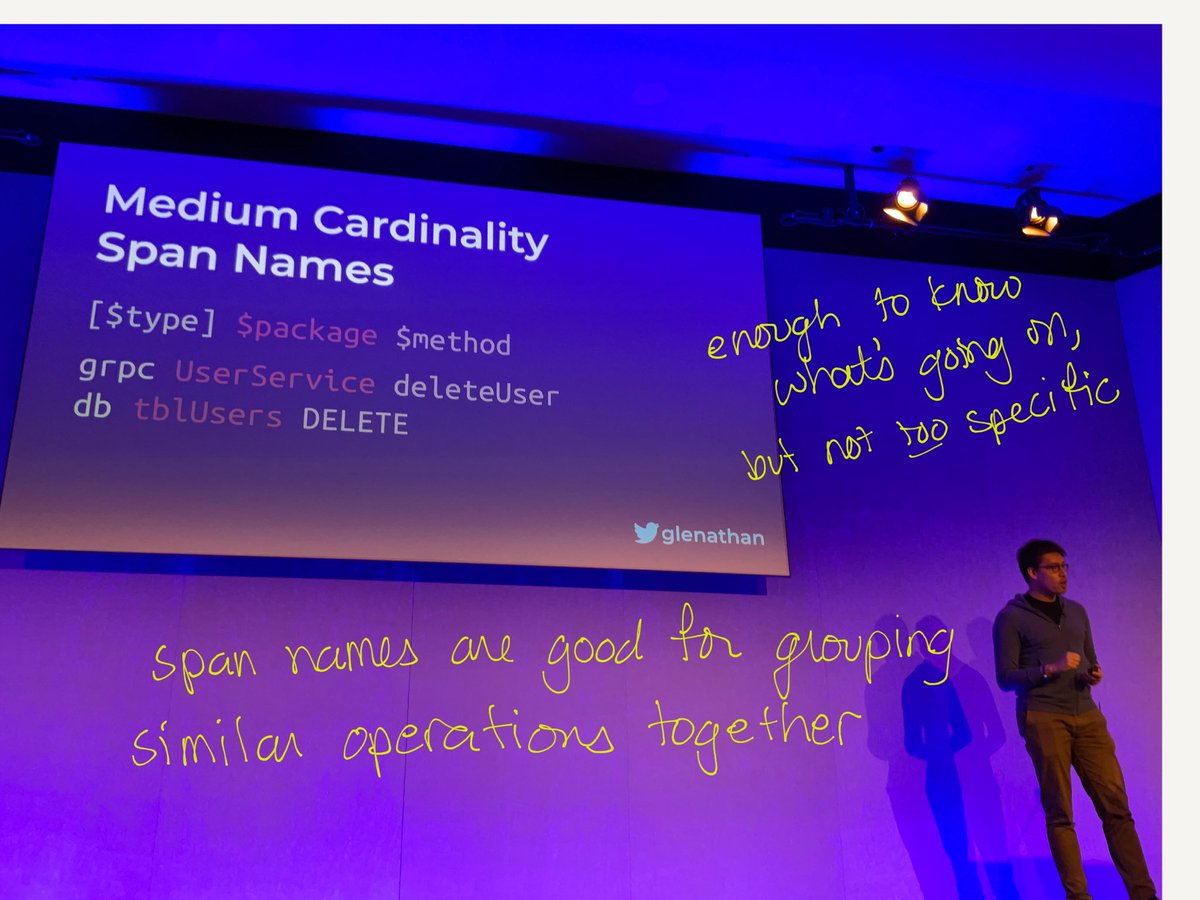
A deep Java performance talk that I don’t have enough context for, by @PeterLawrey 



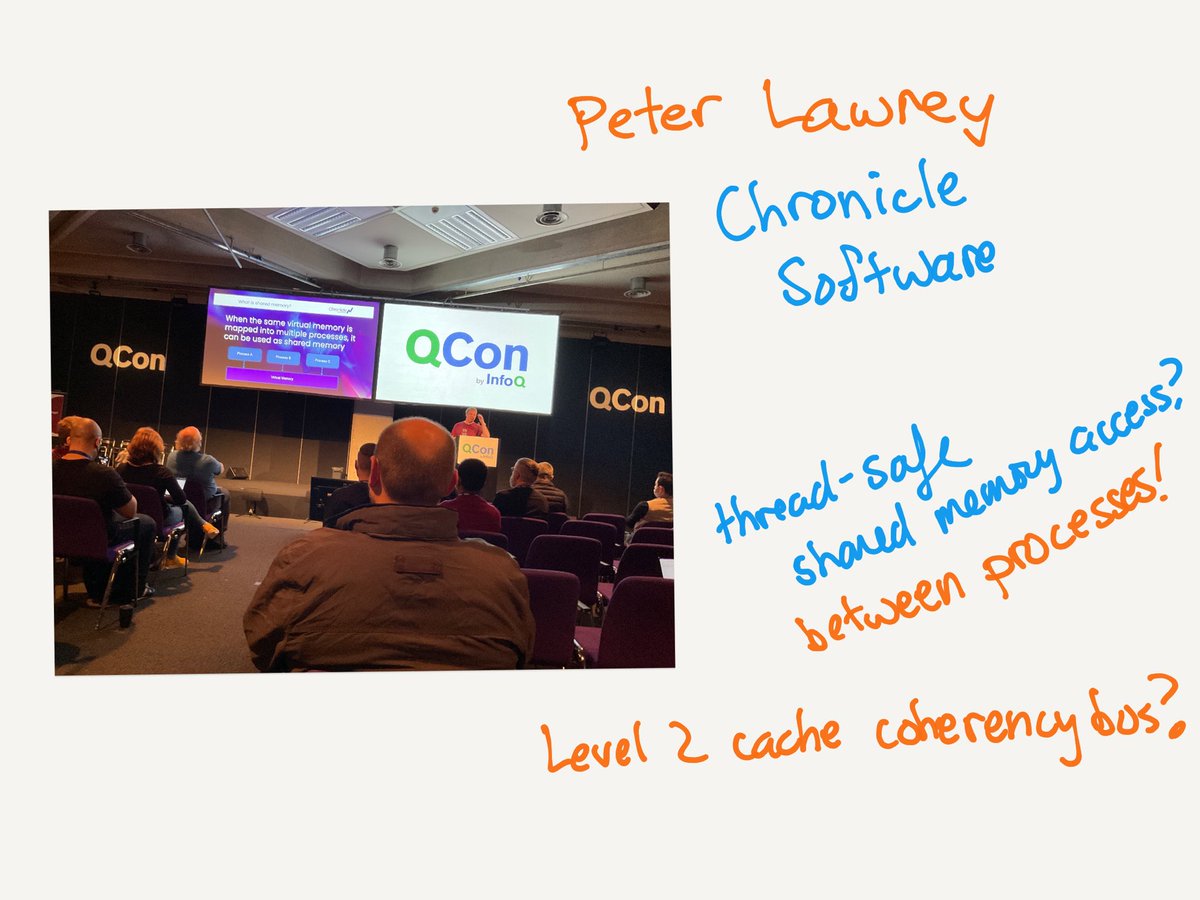

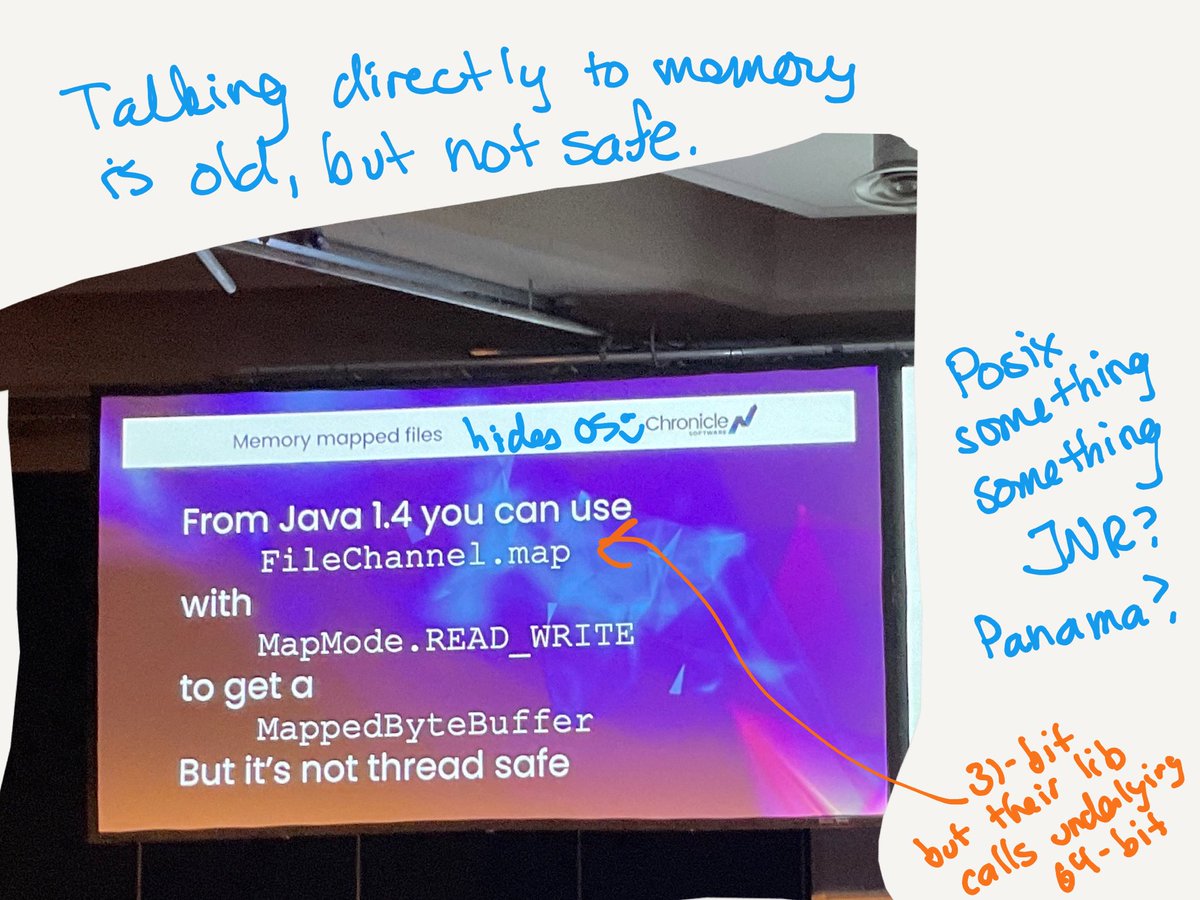

Project Panama is about replacing JNI. Meantime, if you want to share memory between processes cleverly and safely, you can use their chronicle-bytes library. #QConLondon 





“If you go down to the low level for too long, you wind up writing systems that can’t be altered.” @PeterLawrey #QConLondon 

Observability means being able to see wtf is happening.
In the case of this library, that means being able to debug and see something more meaningful than a memory address; and test and diff YAML instead of binary.
In the case of this library, that means being able to debug and see something more meaningful than a memory address; and test and diff YAML instead of binary.

A common “question” format: “When you were developing this, did you consider [alternative that I just thought about]?” 

• • •
Missing some Tweet in this thread? You can try to
force a refresh



















